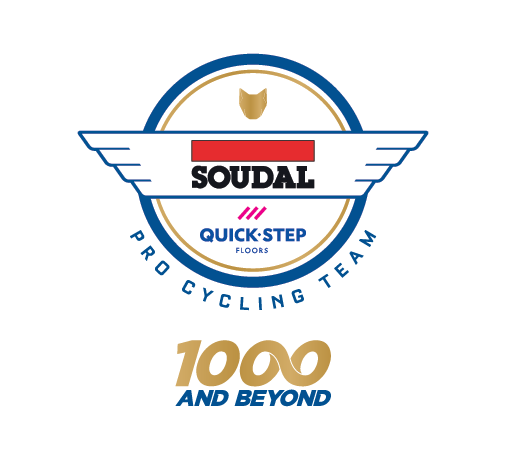Cobblestones, wind-battered stages and three days apiece in the Alps and Pyrenees, next year's edition will have it all.
The 105th Tour de France – at 3329 kilometers the shortest edition since 2002 – will start from the Vendée region, which previously hosted the Grand Depart in 2011, and will have the peloton take on several flat stages suited to sprinters, which could see some of the overall contenders lose any chance of victory on the wind-exposed roads of northern France, even before reaching the stage four team time trial, set around Cholet, over a 35km rolling course.
Mûr-de-Bretagne, which returns after three years, will also spark some fireworks, but it will be stage nine that could lead to the biggest damages in the opening week, denting the hopes of the yellow jersey favourites. Sunday, July 15, on the day the World Cup final will be played, the GC men will have their own match over the treacherous cobbles which every year are part of Paris-Roubaix. Mons-en-Pévèle, Pont-Thibaut and Camphin-en-Pévèle are just three of the 15 pavé sectors that should witness a fantastic fight emerge, for both the stage win and the maillot jaune.
Montée du Plateau des Glières, Col de la Madeleine, Col de la Colombière, Lacets de Montvernier and the mythical Alpe d'Huez will make for a breathless three days in the Alps, before the race will head into the Pyrenees, where Col du Tourmalet, Col des Bordères, Col de Val Louron, Col de Porter and Col d'Aubisque will put the sting into the riders' legs, who'll have to overcome one more hurdle – a hilly 31km-long individual time trial in the French Basque Country – before the final stage in Paris.

Julian Alaphilippe – who debuted at the Tour de France in 2016, when he came very close of a resounding stage victory in Cherbourg – made an analysis of the edition which will take place between 7 and 29 July.
This is going to be a very tough Tour de France. There's no easy edition, but this stands out for the fact it has numerous days which can turn out to be crucial. Looking over the parcourse, it's obvious there are two different parts: one with cobbles – and I must say I never did a race with so many cobbles – strong winds and punchy hills (like the Mûr-de-Bretagne, which I know since my amateur days), and a second in the Alps and Pyrenees, where we'll have a mix of new and traditional climbs – one of these being Plateau des Glières, whose dirt roads I remember from Tour de l'Avenir edition in which I won a stage – together with some really tricky descents.
The short mountain stages will be very nervous and action-packed, the kind of days in which you can lose everything if you make the smallest mistake
To cap it off, there's that really hard ITT on stage 20, which despite not being too long, can see some riders lose minutes, due to the testing course and the fact it's coming so late in the race", said Julian, who this season broke the ice in Grand Tours, nabbing his maiden stage victory at the Vuelta a España.
After a nagging knee injury prevented him from riding the 2017 edition of the Tour de France, the 25-year-old hopes to be at the start of the Grande Boucle next season and help Quick-Step Floors add to the 32 stage wins the team managed by Patrick Lefevere has amassed in the race since 2003.
"We are still more than eight months from the start in Vendée, but I can't tell you how eager I am for this edition to kick off, especially after missing the last one through injury. I am motivated and excited to ride in front of my home fans and fight for some nice results with my team Quick-Step Floors, while at the same time helping my teammates seize as many opportunities as possible during those three weeks. I would have loved for the race to come a little closer to my hometown, so I could ride on the roads I know in front of my friends and family, but nevertheless, I'm sure they'll be on the course, cheering for me", concluded Alaphilippe, one of the squad's 14 riders to have won a race in 2017.
Photo credit: ©Tim De Waele









